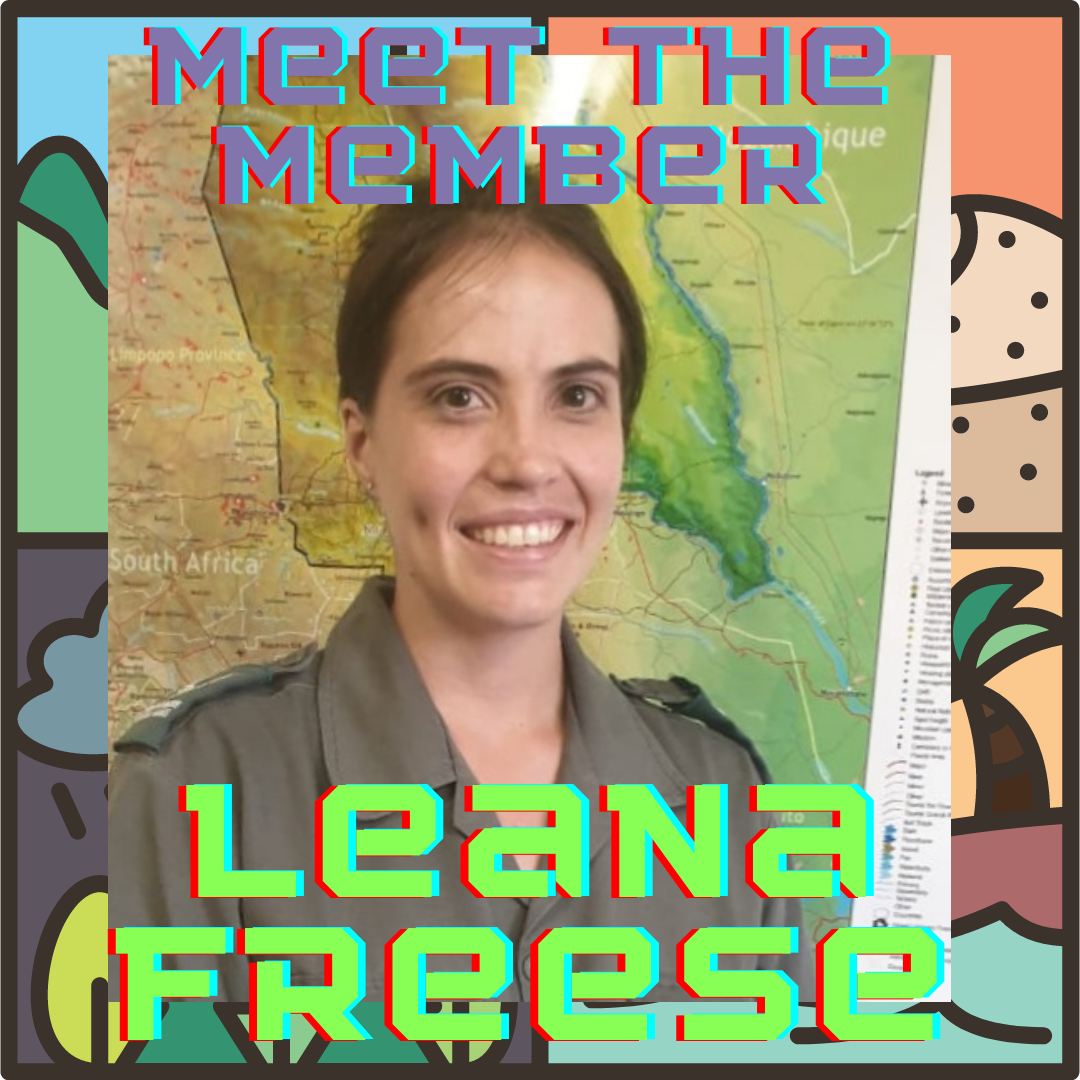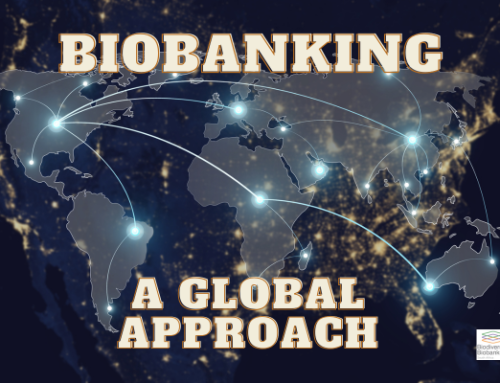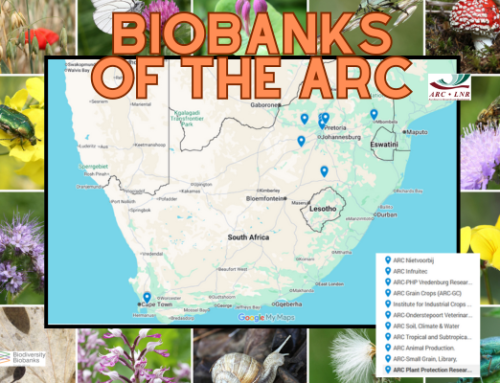Meet The Member: Leana Freese – Collect First, Find Out Later
Leana Rossouw Freese was born in Pretoria, the youngest of four siblings. She developed an interest in animals early on, and went on to study Veterinary Technology at the Tshwane University of Technology.
Now she’s a Veterinary Technologist at one of the Biodiversity Biobanks South Africa’s core biobanks, the SANParks Veterinary Wildlife Services (VWS) Biobank in Skukuza in the Kruger National Park – from the urban jungle to the real jungle, basically.
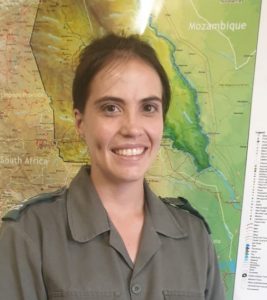
Leana Freese is the Veterinary Technologist at the SANParks Veterinary Wildlife Services Biobank in the Kruger National Park.
The aim of VWS is reintroducing populations, enhancing the conservation status of species, generating revenue through wildlife sales, and coordinating research on wildlife diseases. So any given day could find Leana up to her neck in emails and admin, or up to her arm in a rhino’s rear end, or up to her wits’ end making sure the biobank collections are properly cared for.
“I recently read an article where Oliver Ryder from the Frozen Zoo, in San Diego Zoo said ‘You have to collect things for reasons you don’t yet understand.’ And that is exactly it,” she says.
“A biobank can be a solution for endangered species, and it can be used to answer many research questions related to understanding diseases, genetics, environmental impacts, and animal physiology. We won’t know until we use it – and in the meantime, we need to collect and manage it, so we can find out what it’s really for one day.”
We caught up with Leana to find out more about her life in the biobanks (and beyond)…
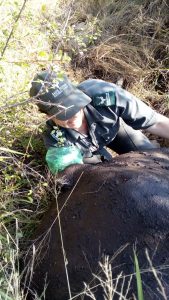
A typical workday at one of the wildest biobanks in the BBSA.
So what’s a typical work day like for you?
Anything but typical. A typical day can be anything from emails, administration of sample requests, meetings, collecting samples through various wildlife management programmes, processing the samples in the laboratory and biobanking, preparing samples for researchers, improving the systems for archived samples, collaborating and assisting researchers
What’s the most challenging part of your job?
Well, one challenge, from a research perspective, is that we are located in the FMD (Foot-and-Mouth disease) infected area, which causes restrictions for researchers moving samples. A possible solution would be to have an approved BSL 2+ Laboratory – but that’s a long-term plan, so hopefully I’ll have more to say on that some other time.
How has being part of the BBSA helped you do your job?
With funding provided by BBSA, both the VWS Biobank in Kruger and the VWS Kimberley biobank have been able to secure a variety of much-needed equipment to sustain ongoing functions. Funding has also been provided to appoint a biobank technician to assist with biobank functions paying special attention to continuity and organising past and future samples.
What does the BBSA mean to you?
I think the BBSA has the potential to be an organization that helps various biobanks collaborate, and share information, knowledge, and expertise – which in the end will give the end user, the researcher, the best accessibility of quality samples, resulting in high quality and significant research. We’ve started the journey – but there’s a long way to go before the network can reach its full potential.
So what do you do to relax – or when you’re not working, anyway?
Spend time with my people and my dog, and do anything outdoors: mountain biking, fishing, sport shooting, gardening, etc.
What’s your favourite animal? Spoilt for choice, I know…
Honey Badgers. They’re fierce little creatures, with a backpack full of attitude, and they’re always ready to take on anyone and anything. I’ve witnessed one snarling at a helicopter.
If you could give your teenage self one bit of advice, what would it be?
Everything will be fine; just enjoy where you are at the moment.
Want to know more about the SANPARKS Veterinary Wildlife Biobanks? We’ve got you covered. Or find out about the other BBSA partner institutions here. And while you’re at it, why not learn more about what biobanks are (and aren’t) all about?

What are biodiversity biobanks?
Biodiversity biobanks are repositories of biologically relevant resources, including reproductive tissues such as seeds, eggs and sperm, other tissues including blood, DNA extracts, microbial cultures (active and dormant), and environmental samples containing biological communities….

